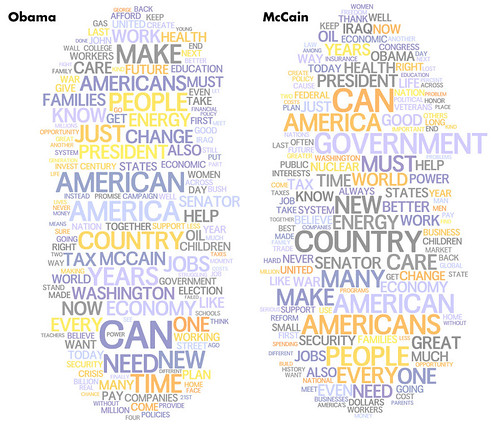Scott Adams, creator of Dilbert, wondered why someone wasn’t doing something that would give American voters useful and unbiased information about which candidate has the best plans for the economy.
Then he realized that he was someone.
He commissioned a survey of over 500 economists, drawn from members of the American Economic Association, a nonpolitical group, that had previously agreed to be surveyed on economic questions.
The economists were asked to rank the most important economic issues and pick which candidate they thought would do the best job on those issues.
Here are the results:
| Rank |
Issues |
Obama |
McCain |
No Diff. |
| 1 |
Education |
59% |
14% |
27% |
| 2 |
Health care |
65% |
20% |
15% |
| 3 |
International trade |
26% |
51% |
23% |
| 4 |
Energy |
61% |
22% |
17% |
| 5 |
Encouraging Technology/innovation |
43% |
23% |
34% |
| 6 |
Wars and homeland security |
58% |
30% |
11% |
| 7 |
Mortgage/housing crisis |
41% |
18% |
41% |
| 8 |
Social Security |
40% |
24% |
35% |
| 9 |
Environmental policy |
72% |
9% |
19% |
| 10 |
Reducing the deficit |
37% |
29% |
33% |
| 11 |
Immigration |
33% |
29% |
38% |
| 12 |
Increasing taxes on wealthy |
79% |
14% |
7% |
| 13 |
Reducing waste in government |
16% |
38% |
46% |
Adams is quick to point out that even though economists favour Obama in 11 of 13 of the most important issues (as decided by the survey) 48% of economists are Democrats and only 17% are Republicans.
It makes you wonder, are liberals more likely to go into economics, or are economists more likely to become liberals? Or is it just the simple fact that educated folks tend to be more progressive?
You can check out the full report (in Power Point format).
